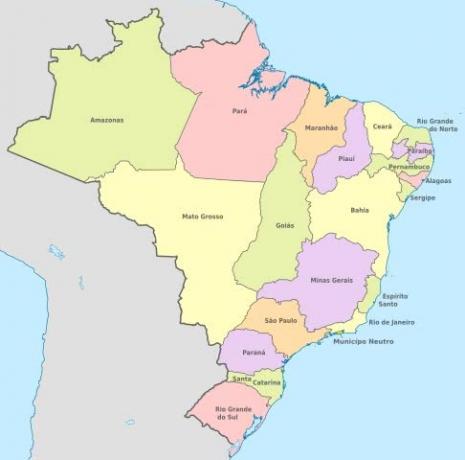Who was Baron of Rio Branco? Baron of Rio Branco was the title given to José Maria da Silva Paranhos Júnior, a carioca who worked in several areas, such as politics and diplomacy.
Accomplished important missions in the period imperial It is republican. One was the annexation of vast regions to Brazilian territory without the use of weapons.
see more
Scientists use technology to unlock secrets in ancient Egyptian art…
Archaeologists discover stunning Bronze Age tombs in…
He was one of those responsible for establishing Brazil's borders and one of the pioneers in the country's history.
José Maria da Silva Paranhos Júnior received the title of Baron of Rio Branco at the end of the imperial period. Even after the Proclamation of the Republic, he continued to sign his name as Baron of Rio Branco.
The Baron of Rio Branco believed that diplomacy was an effective weapon to resolve issues related to borders of Brazil.

The first impasse he resolved was over the dispute between the Brazil and the Argentina part of the territory of the present state of Santa Catarina.
The matter was taken to international arbitration. US President Grover Cleveland was chosen to be the referee.
The Baron of Rio Branco was the person appointed to advocate for Brazil in 1893. Anchored in intense documentation and maps, he manages to prove that such regions correspond to Brazilian possessions.
The borders of North region of the country were not established. Part of the current state of Amapá it was disputed by Brazil and France, who claimed to have rights over the territory. After warlike clashes, the two countries decided to submit the issue to international arbitration.
In this way, the Baron of Rio Branco was asked to write and organize the documentation that defended the country's interests. The president of the Swiss Confederation determined, in 1900, that the territory corresponded to the dominions of Brazil.
The territory that corresponds to the current state of Acre was disputed by Bolivia and Brazil. Several Brazilians occupied the region due to activities in the rubber plantations until Bolivia leased the territory to an American company.
As a result, there are revolts that lead the Brazilian government to intervene. The Baron defended the principle of uti possidetis, which determines that whoever actually occupies the territory is responsible for it.
In 1903, the Treaty of Petropolis established, among other measures, that Brazil should cede territories of the Mato Grosso to Bolivia, build the Madeira-Mamoré railroad and pay compensation.
On the other hand, the territory corresponding to Acre was annexed to Brazil.
Learn more at: